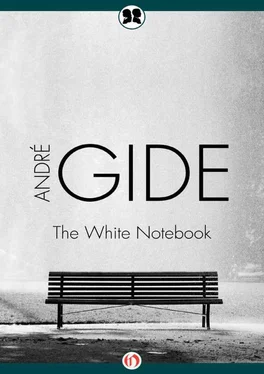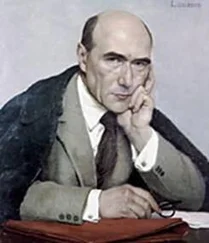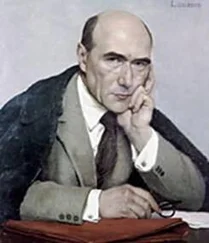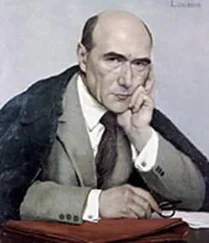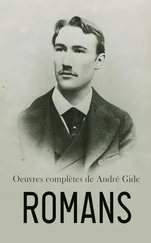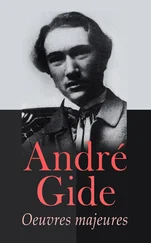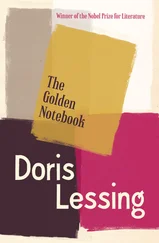His fictional image had to blend the attributes of both mother and cousin. This he accomplished in The White Notebook by fusing the remembered image of an older sister who had died with the Emmanuèle who lived in Walter’s imagination — all purity, all goodness, all that he envisioned as noblest and best in himself. He had fallen in love with a fictitious entity as inaccessible as the reflection of Narcissus: a projection of his superego. Here the supreme achievement of love would be the annihilation of the body and the freeing of the soul. The bedside scene in which Walter renounces possession of Emmanuèle in favor of a higher union anticipates the supposed relationship of Gide and Madeleine after his marriage to “the only love in my life.”
Gide believed not only that his first work was of general interest but also that it would overcome the objections of his mother and the resistance of Madeleine to his proposal. It was to bring glory to him and make everyone concerned realize that his noble, moving declaration of love should be opposed by no one.
The book was published at the author’s expense (or rather his mother’s). In a few special copies the name Madeleine was substituted for Emmanuèle. A copy was presented to her with an appropriate inscription and the request that she read it the same night. Her diary shows that she was moved to tears when she finally read it but that she found it too true to life and considered it an invasion of her privacy. Her polite but formal rejection of his proposal hurt him deeply, but he still felt kindly toward her. It would seem that nothing that she had ever said actually gave him grounds for thinking that she wanted to marry him, and that here again the facts were not as he had imagined them.
He could, however, draw some comfort from the attention given his work by critics. Stéphane Mallarmé and Henri de Régnier praised the delicate quality of its style. Maurice Maeterlinck noted that it “eternalized” the struggles of a virtuous soul. Joris-Karl Huysmans and others saw in Walter’s plight a new “sickness of the century,” or rather of the last half of the century. Rémy de Goncourt hailed the book as the distillation of all the study, dreaming, passion and anguish that make up youth and the author of the anonymous work as a romantic-philosophical disciple of Goethe. The same critic predicted that the author’s future work would take a turn in the direction of irony.
Gide lived up to Goncourt’s expectations by becoming a master in the use of gentle irony. A blend of irony, humor, parable and narrative genius made it possible for him to sustain a rewarding dialog with readers and himself. Though as an avowed purist he expressed misgivings about The Notebooks, he could never divorce aesthetics and ethics. The result is that his dialog is always tinged with ethical considerations. Only a self-imposed morality could enable André Gide — or André Walter, the first typical Gidean hero — to achieve the highest potential of his being.
* * *
I have tried through occasional notes to call attention to significant facts that may be of interest to the reader. In many instances I have borrowed freely from the writings of Dr. Jean Delay. I wish also to express my appreciation to Professor Ralph Behrens, who read the first draft of my translation and made many constructive suggestions, and to the others who have helped me to prepare for publication this edition of Gide’s first work: Jim Barnes, James Gamble, Cherry Jeffrey, Pat Livingston, William McCray and Diane Puckett.
WADE BASKIN
SOUTHEASTERN STATE COLLEGE
Wait till your sadness is assuaged, poor soul, wearied by the struggle of yesterday.
Wait.
When tears are shed
cherished hopes will blossom anew.
Now you must sleep.
Lullabies, ballads, barcaroles,
The song of the willows smoothes the cadence.
* * *
You must say a good prayer this evening, and you must believe. This you will have forever. No one can take it from you. You will say: “The Lord is the portion of mine inheritance … when my father and my mother forsake me, then the Lord will take me up.” 1
And then you will sleep. Think no more; bitter days are still too near.
Let memories feed your dreams.
Rest.
Thursday
Wrote some letters.…
I tried to read, to think.… Exhaustion soothed my sadness, which now seems but a dream.
Now beneath the trees
The darkness is comforting.
How silent is the night. I am almost afraid to fall asleep. I am alone. Thought emerges from a dark back ground; the future appears above the dark as a ribbon of space. Nothing distracts me from my primary vision. I am this vision and nothing more. 2
* * *
Some evening, turning back, I shall repeat these words of sorrow; now it sickens me to write. Words are not for these things, not for emotions too pure to be spoken. I am afraid that empty, high-sounding words are blasphemous; hating the words that I have loved too much, I wish to write badly by design. I wish to disrupt harmonies wherever they happen to exist. 3
Rest in peace, mother. I have been obedient.
My soul still smarts from its dual ordeal, but sadness is giving way to pride of conquest. You knew me well if you thought that by its very excess virtue would entice me. You knew that arduous and challenging paths lure me, that senseless pursuits appeal to me because of my dream, and that a little folly is necessary for the satisfaction of my pride. 4
You made them all depart in order that you might speak to me alone (it was only a few hours before the end).
“André my child,” you said, “I want to die assured.”
I already knew what you would say to me and had summoned up all my strength. You hastened to speak because you were very tired.
“It would be good for you to leave Emmanuèle.… Your affection is fraternal — make no mistake about it.… It springs from the life in common that you have been leading. Although she is my niece, do not make me regret having treated her as my own since she became an orphan. I would not wish to allow you complete freedom, for fear that your emotions would mislead you and make the both of you unhappy. Do you understand why? Emmanuèle has already suffered much. I want more than anything else for her to be happy. Do you love her enough to prefer her happiness to yours?” 5
Then you spoke of T*** who had just responded to the sad news.
“Emmanuèle thinks highly of him,” you remarked.
I knew that she did, but I remained silent.
“Have I put too much trust in you, my child?” you continued, “or can I die assured?”
I was exhausted by the recent ordeals.
“Yes, mother,” I said, not really understanding but wishing to continue to the end — to hurl myself into the heart of darkness.
I departed. When they summoned me, I saw Emmanuèle near your bed, clasping the hand of T***. We knelt and prayed. My thoughts were confused — then you went to sleep.
After the palliative rites, we had communion together. Emmanuèle was in front of me. I did not look at her. To avoid thinking of her and lapsing into reveries, I repeated: “Since I must lose her, may I at least find Thee again, O Lord. Bless me for following the strait and narrow path.”
Then I departed. I came here because I could not rest. 6
Thursday
I worked in order to keep my mind occupied. It is through work that my mind is revitalized.
I took out all the written pages which recall the past. I want to read them once more, to arrange them, to copy them, to relive them. I will write some stories based on old memories.
I will turn my thoughts from earlier dreams in order to begin a new life. When memories are set down, my soul will be lighter. 7I will stop them in their flight. Whatever is not yet forgotten is not entirely dead. I do not wish to leave behind me without even a parting nod the enduring fancies of my youth.
Читать дальше
